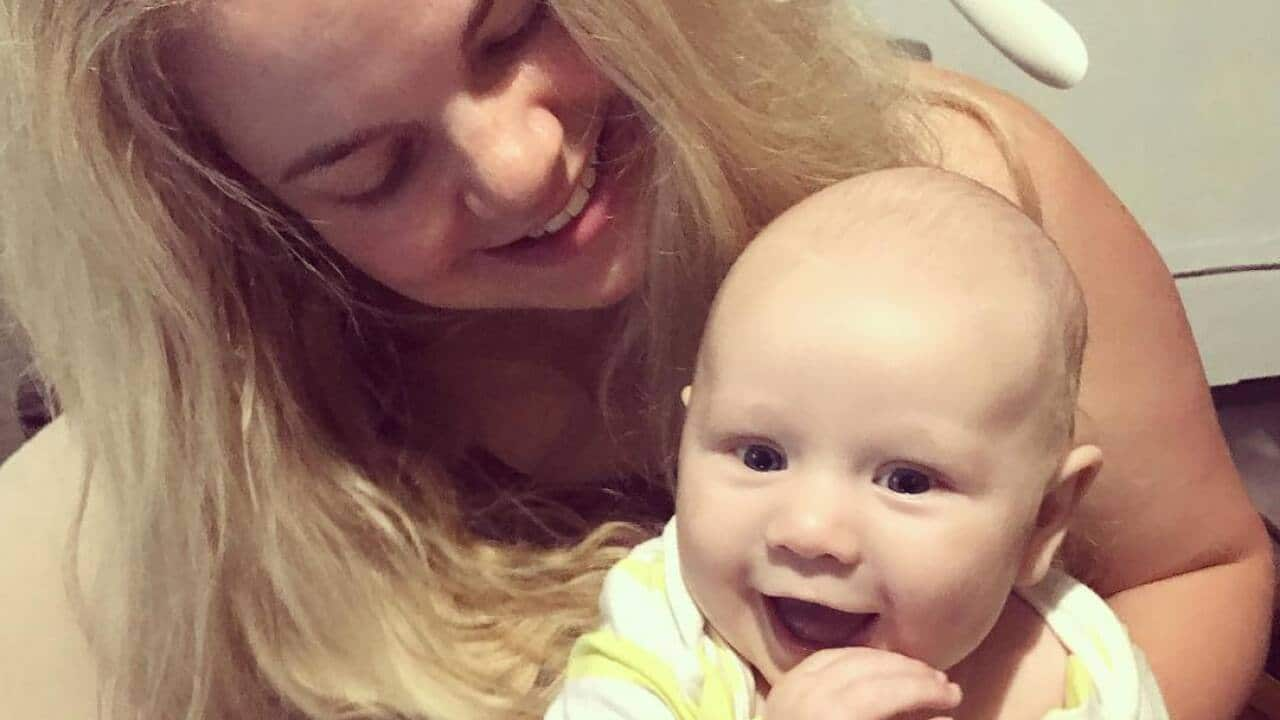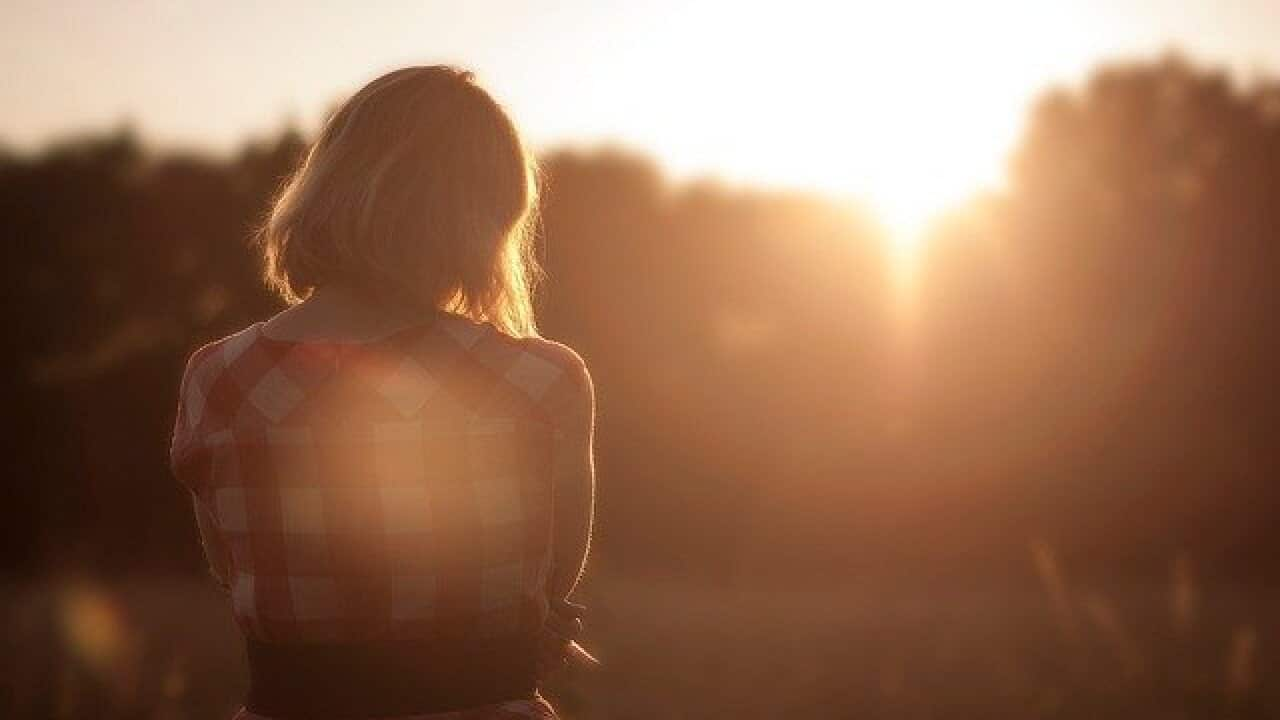Watch Insight's episode "Let's Talk About Death" on Tuesday, 30 May from 8:30pm on SBS or.
This article contains references to stillbirth. The content may be distressing.
I loved being pregnant.
The newness of it all was thrilling and while it was an unexpected pregnancy, at 30 I felt ready for this new adventure. Labour kicked off at home and once we settled into the birthing room at the hospital, I rode the contractions like a boss.
I was near fully dilated and on one of the regular heart rate checks when they noticed my baby’s heartbeat wasn’t pacing between the contractions in the way it should.

Jessie pregnant with Monty, standing next to her former partner Andy. Credit: Supplied.
Thinking back to that moment, there was an acute feeling of panic in the room and yet I was flooded with love and relief! I saw him briefly as he came out with my legs in the stirrups and noticed he was large and perfect, 10 pounds (4.5kg) in fact. I laid back and felt relief and exhaustion wave over me.
The moment my life changed
A few minutes later, an obstetrician leaned in close, and with empathic eyes, she said, ‘I’m very sorry Jessie, but your baby has died.”
She placed him on me. He was heavy and beautiful.
The noise in the room lowered, everything was soft. As I held my baby boy Monty, a wave of terror and grief rolled through me and I howled.
No one knows why he died.
Over the next few days in hospital, I felt like I was in a painting with people swirling around me. My mum wept on my lap, my midwife sat at the end of the bed, my dad took photos, while my partner played concierge welcoming people in with his best mate sitting in the corner, refusing to go home.
There were moments of pure intimacy, soft chatter and silence. It was blanketed with a distinct feeling of confusion and not knowing what to do next.
I was discharged after two nights and was given the hospital brochure. It read, ‘arranging a funeral for your baby’. I couldn’t read it and it felt ridiculous holding it in my hand. In the midst of all this grief, something happened that I believe changed the trajectory of my grief.
Taking my baby home
A social worker came into the hospital room, she gently leaned in and said to me, ”you know, you can take Monty home.”
Before she said that, I was kind of frozen in time, I felt psychologically fractured. But then my energy changed. I felt excitement.
No one knows why he died.
At first, my family were concerned I may not have been able to cope with having him home with all the baby equipment, clothes and reminders of how we had planned to care for him. They were soon relieved to see that I was no longer frozen.
At home, I went through the daily routines of a new mother. Whilst this made me feel sad, I think it helped me come to terms with the fact he was dead.
Slowly, people started arriving to meet him. They knew he had died. We shared the joy and utter heartbreak of meeting Monty. We collectively tried to make sense of his death. The feeling in my home was of thick-soup-love. We were all in this cocoon, but anyone could join. We felt triumphant.
After three days we handed him to the funeral director before having him home for one last night in private to say our final goodbye.
How I learned to grieve
In the years to come, I learned that death and grief are often done badly. The time between death and the funeral is rushed and so often the role of family and friends in shaping their experience around how they say goodbye to their loved one’s bodies is given to funeral directors when in fact, many of us want and need to set the pace and have a say on how it is done.
If it’s an expected death, the best advice is to put the kettle on. Take your time and trust that you will know how to navigate the path ahead. This is made easier if you find the right final directors who will empower you to do it well beforehand.
We shared the joy and utter heartbreak of meeting Monty.
Now, I advocate for people to develop their death literacy as a life skill through a national public health campaign where you can attend an event to learn about the planning documents you need and the options that are available to you when you are having to face the death of a parent, sibling or friend or indeed, yourself.
Knowing we have so many choices on how we can do death differently helps to reduce the fear of the unknown. My experience of Monty's death and how we did it transformed me and my friends because it reminded us we are all mortal. Consciously knowing this makes us live and love deeply.
Readers seeking crisis support can contact on 13 11 14. Other services include and which provides confidential support on 1300 845 745.




